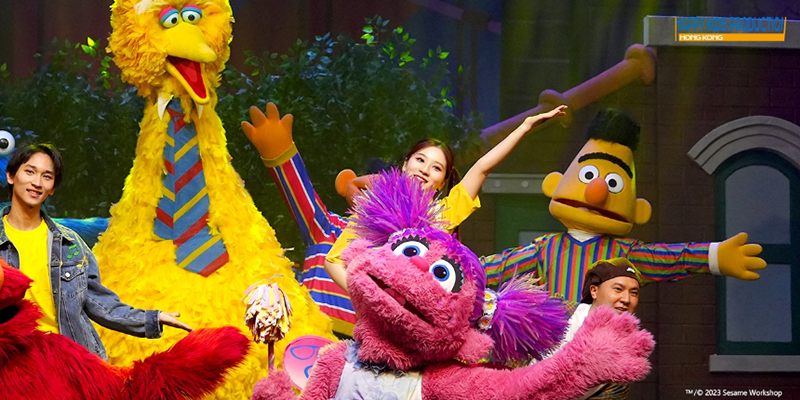Theatre is a multifaceted art form that offers a wide range of experiences, from the emotionally stirring to the intellectually stimulating. Whether you’re a seasoned theatre-goer or a newcomer, understanding the different types of theatre productions can enhance your appreciation of this timeless art. Here, we delve into some of the most common types of theatre productions, each offering its unique charm and appeal.
Musicals are perhaps the most iconic form of theatre, especially in renowned districts like London's West End and New York's Broadway. These productions combine acting, singing, and dancing to tell a story, often featuring memorable songs that stay with audiences long after the curtain falls. Classics like Andrew Lloyd Webber's ''Starlight Express'' and contemporary hits like ''Only Fools and Horses'' exemplify the genre's broad appeal. The emotive power of music in these shows can evoke a wide range of emotions, making musicals a favorite for many theatre enthusiasts.
Traditional plays remain a cornerstone of theatre, offering a diverse array of stories that range from the light-hearted to the deeply dramatic. Modern hits like ''2:22 A Ghost Story'' which has featured celebrities such as Tom Felton and Jaime Winstone, showcase the genre's ability to captivate contemporary audiences. On the other hand, timeless classics like Agatha Christie's ''Witness For The Prosecution'' continue to draw crowds with their gripping narratives. Whether it's a modern plot or a classic tale, traditional plays offer something for everyone.
Immersive theatre takes the audience out of their seats and into the action, creating a more intimate and interactive experience. Unlike traditional theatre, where the action is confined to the stage, immersive productions unfold around the audience, often encouraging direct interaction with the cast. Shows like ''Pricilla The Party'' even invite audience members to join in on the dance floor, blurring the lines between performer and spectator. This type of theatre can also include unique dining experiences, making it a multi-sensory event.
Family shows are designed to entertain and inspire audiences of all ages, making them an excellent introduction to the world of theatre for young children. These productions often feature vibrant costumes and engaging stories that capture the imagination. Musicals like ''Shrek The Musical'' based on the popular DreamWorks animation, and plays like ''The Tiger Who Came To Tea'' adapted from Judith Kerr's beloved storybook, are perfect examples. Family shows not only entertain but also encourage children to explore their creativity and hidden talents.
HAPPYKIDS takes family entertainment to the next level by collaborating with professional creation and performance teams. We exclusively partner with top international parent-child IPs, combining unique effects, creative song and dance performances, and interactive experiences. This approach brings beloved cartoon scenes to life on stage, immersing children in a magical world and providing unforgettable parent-child moments.
For instance, shows like the Ultraman Live Stage Show, brilliant Thomas and Friends Live on Stage and Octonauts Show Live series transform popular animated series into engaging live performances. Similarly, Sesame Street Live: Make a New Friend and Digimon Stage Play offer interactive experiences that captivate young audiences. These productions not only entertain but also inspire children to explore their creative potential, making theatre a delightful and educational experience for the whole family.

Modern morality plays tackle current themes and societal issues, prompting audiences to reflect on their own beliefs and behaviors. This genre has its roots in Medieval and early Tudor times, where plays were used to teach moral lessons. Contemporary morality plays, such as ''Power of Sail'' continue this tradition by personifying moral qualities and exploring the consequences of actions. These productions challenge viewers to think critically about human nature and societal norms, making them both thought-provoking and relevant.
Melodrama, a genre that gained popularity in the 18th and 19th centuries, is characterized by exaggerated plots and emotional music designed to elicit strong reactions from the audience. The heightened drama and orchestral scores create an emotional atmosphere that captivates viewers. While melodrama may seem over-the-top to some, its ability to engage the audience on an emotional level makes it a compelling form of theatre.
Comedy plays are designed to entertain and amuse, often incorporating various themes such as black comedy and malapropisms. Historically, as per Shakespearean tradition, any play with a happy ending was considered a comedy. Today, the genre has evolved to include a wide range of humorous styles, often delivering insightful messages through laughter. Comedy remains a popular choice for those looking to enjoy a light-hearted theatre experience.
Autobiographical theatre offers a deeply personal perspective, often narrated from a first-person viewpoint. These productions can be solo performances or involve multiple characters, with the lead or a narrator guiding the audience through the story. This genre allows for a unique connection between the performer and the audience, as real-life experiences and emotions are brought to the stage.
In conclusion, the world of theatre is rich and varied, offering something for everyone. Whether you're drawn to the musical's emotive power, the traditional play's narrative depth, or the immersive show's interactive experience, there's a theatre production out there that will captivate your imagination. So, the next time you plan a theatre outing, consider exploring a new genre—you might just discover a new favorite.
